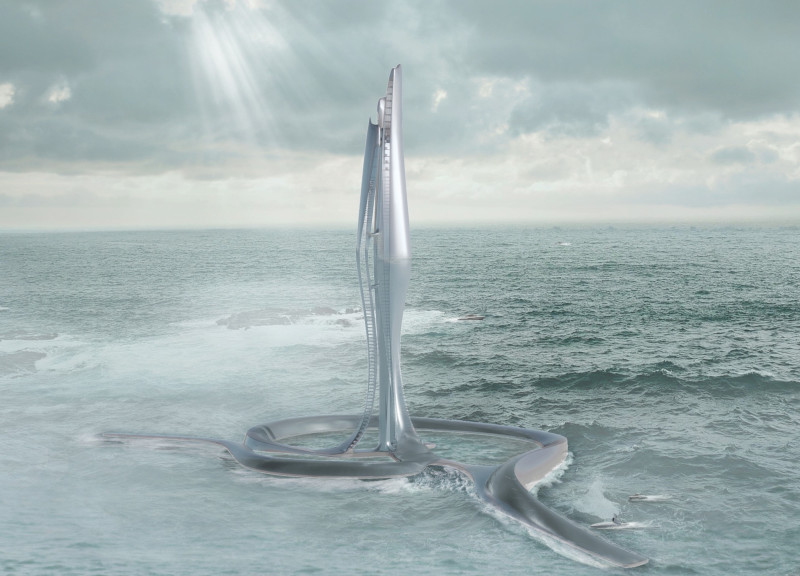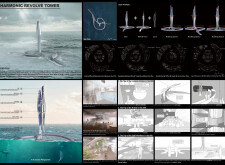5 key facts about this project
**Project Overview**
Located in an urban center, the Harmonic Revolve Tower integrates modern technology with ecological sustainability and cultural interaction. This skyscraper is designed to serve as a hub for community engagement, addressing current challenges in urban living while promoting social connectivity and environmental awareness.
**Spatial Strategy**
The tower's spatial organization revolves around a central core, enabling efficient vertical circulation while offering a variety of functional zones. The layout includes residential units equipped with shared amenities for communal living, business centers tailored for collaborative work environments, and cultural spaces such as theaters and exhibition areas that aim to foster artistic expression. Each level is thoughtfully designed to cater to the diverse needs of residents, visitors, and the surrounding community.
**Rotating Mechanism and User Experience**
A distinctive feature of the design is the rotating mechanism, which allows for dynamic user experiences within the building. The gradual rotation of the floors offers varied perspectives, creating an ever-changing environment. The design incorporates themed experience zones, contributing to user engagement through diverse activities such as exhibitions and wellness retreats. Additional elements such as green terraces and communal areas enhance connectivity with nature and promote social interaction, fostering a sense of community among occupants.
The materials selected for the tower will likely include glass for transparency and natural light, steel for structural integrity, and concrete for energy efficiency, alongside sustainable options like recycled composites, which collectively advance the building's ecological footprint.


















































